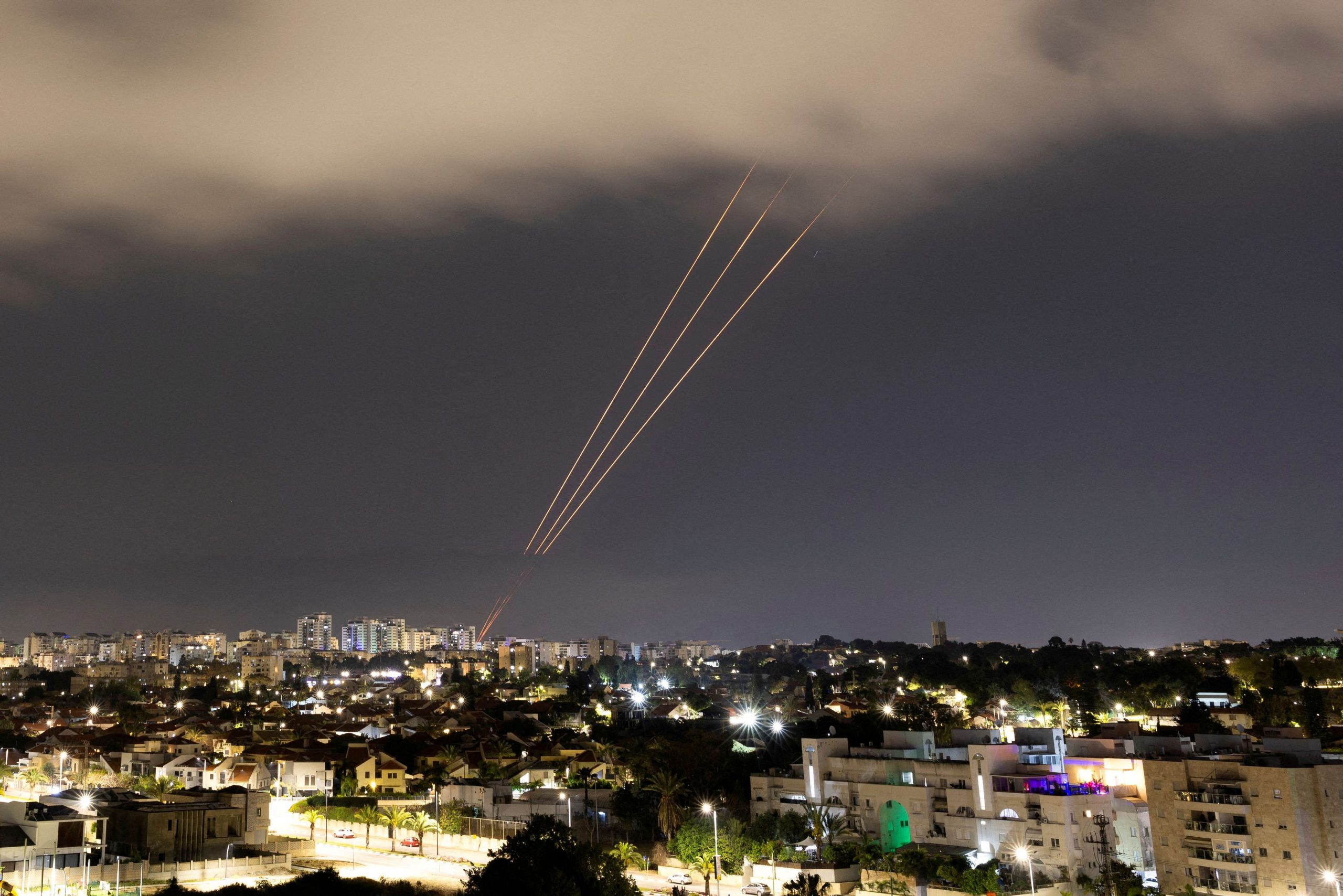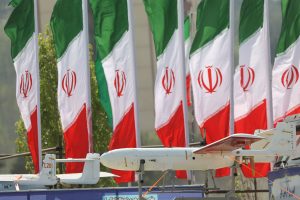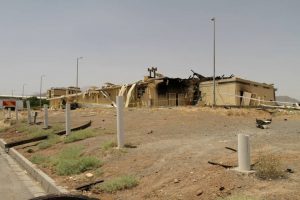Israel’s recent retaliatory action against Iran has reignited concerns about the escalation of conflict in the Middle East. However, according to American analyst and former Pentagon official Michael Rubin, the Israeli strike is unlikely to escalate into a prolonged conflict between the two sides. Mr. Rubin is a senior fellow at the American Enterprise Institute, where he specializes in Iran, Turkey, and the broader Middle East.
Regarding Turkey’s role, Michael Rubin suggested that while unconfirmed, Turkey’s history of demanding veto power over military missions casts doubt on its cooperation in the conflict. He underscored the significance of U.S. bases in Greece compared to those in Turkey
“I can guarantee you that when it comes to potential conflict in the region, American planning is such that we will not gamble on Turkish cooperation,” Mr. Rubin maintained. “Souda Bay and Alexandroupolis are much more important to the United States today than the Incirlik Air Base.”
Where do we currently stand in this conflict, and where could it go next?
Well, first of all, we are at the end of the beginning. We’re not at the beginning of the end. So, the conflict, the next chapter, could go in a number of different directions. The notion that the Iranians were only acting symbolically and in a way that was designed not to cause serious damage is more spin than reality. When you launch more than 300 drones and missiles, that is not a symbolic action. The Iranians thought they were better than they were, but while most of the missiles and drones were shot down, the fact that at least seven got through is extraordinarily dangerous, because if in the future Iran launches a barrage and it equips its missiles with nuclear, biological, or chemical warheads, seven getting through can cause significant damage.
They have shown their ability to target with precision. The Israelis did not hit the Iranian embassy in Syria, like the Iranians claimed, nor did they hit the Iranian consulate. They hit a third building adjacent to them. And if you look at the photos, the consulate and the embassy are still standing. And that just indicates the precision which Israel can strike. So, they showed that they are able to apply it to Iran itself in a way where the Iranians weren’t able to achieve the same effect in Israel.
Was the Israeli attack intentionally aimed at avoiding a response from Tehran?
If Israel can strike at Iran much more effectively than Iran can strike at Israel, then I suspect that what Israel is doing is reestablishing deterrence. It is incredibly dangerous that Iran struck directly from Iran to Israel. That used to be something that was a red line. Once that red line has been violated, it will occur again unless we have a reimposition of deterrence. And that is why I would argue that in the cause of peace and security, Israel needed to hit harder sooner, so as to signal to Iran that Iran cannot strike at Israel and then hide behind the skirts of European diplomats.
What role is the United States playing in de-escalating tensions between the two sides? Can you clarify the U.S. stance regarding the Israeli strike on Iran?
Look, publicly and privately, the Biden administration opposes any Israeli strike. What the Biden administration wants is for Israel to simply stand down and show itself to be, in some ways, a more restrained country. However, the Biden administration doesn’t seem to understand Israel’s security concerns and the cost of Israel not responding, the cost of signaling to Iran that they can get away with striking at Israel. What I would suggest is that the Biden administration simply is holding Israel to a standard that it would not hold itself to when the United States has been struck by terrorists.
Israel provided a relative short notice before the attack. Is there a growing sense of mistrust between the two allies?
The short answer is there is mistrust. There is a sense not only in Israel, but in the United States that Biden administration policy is shaped by Biden’s own personal political calculations in Michigan and Minnesota, where he needs to win the Muslim vote more than the national security interests of the United States. Israel is not going to allow itself to be sacrificed for the sake of a senile old man’s dream of winning a second term.
What would the implications of a full-scale war be for the global economy and the international community? How might countries like Greece, situated close to the Middle East, be affected?
Well, first of all, there will not be a full-scale war. I mean, Israel and Iran, for example, are not contiguous, so there will not be a ground war, and if there are airstrikes and missiles, they will not be continuous. In 1998, President Bill Clinton bombed Iraq for three days, but then after three days, the situation calmed. That would be, at most, what we would be facing with regard to Iran and Israel.
However, the issue is that the status quo right now is not tenable. It is breaking down, and the reason it is breaking down is because Iran is a revisionist power. Iran, through its terrorist proxies, is attacking shipping in the Bab al-Mandab. It has blocked a great deal of traffic going through the Suez Canal. By way of Hezbollah, it threatens the eastern Mediterranean, and we have a growing Iranian presence in occupied northern Cyprus. So, the cost of doing nothing is to allow threats; to allow further constraints on freedom of navigation and international trade. That is why it is so important for the West to act in unison in order to defend the sanctity of international waterways.
When it comes to Greece, Greece is already punching above its weight. The Eastern Mediterranean, up until ten or fifteen years ago, was a place that ships would sail through on their way to the Red Sea or the Persian Gulf. Increasingly, it is really the center of gravity. And Greece and its military developments, Cyprus, and its strategic geography and its military involvement, are showing that they are a center of gravity for the defense of the West.
Greece and Cyprus are now on the front lines, and fortunately, both Greece and Cyprus are acting like it. They are responsible partners who are doing what is needed to defend the West. All you have to do is compare what Greece and Cyprus are doing with what Turkey is doing, because Turkey is also on the front line. You can see that Greece and Cyprus are an asset, and Turkey is a liability to stability, security, liberalism, and democracy.
Can you confirm reports suggesting that Turkey declined a requested from the United States to utilize its airspace for protecting Israel from Iran? If so, what factors do you think influenced Turkey’s decision to adopt this stance?
Well, I have not confirmed this information. But I should say that in previous negotiations with Turkey, Turkey often demands that it has veto power over every single mission flown from the Incirlik Air Base. And because Turkey in the past has tried to interfere in missions, I can guarantee you that when it comes to potential conflict in the region, American planning is such that we will not gamble on Turkish cooperation. Souda Bay and Alexandroupolis are much more important to the United States today than the Incirlik Air Base. For Turkey to say that they would not allow the Americans to operate is basically Erdogan’s way of saying, hey, look, world. ‘Look at me. I want some attention, even though the rest of Europe and the West think that I am irrelevant.’
Finally, is there any misinformation in the media regarding this conflict, or is there a significant aspect that deserves more attention in news coverage?
The only thing I would say in this is one of the reasons why Europe and the United States do not want Israel to go into Rafah is it is now widely believed that there are tunnels from Egypt into Rafah that were used to smuggle Hamas weaponry and that it is going to be deeply embarrassing for Egypt when this is exposed.











